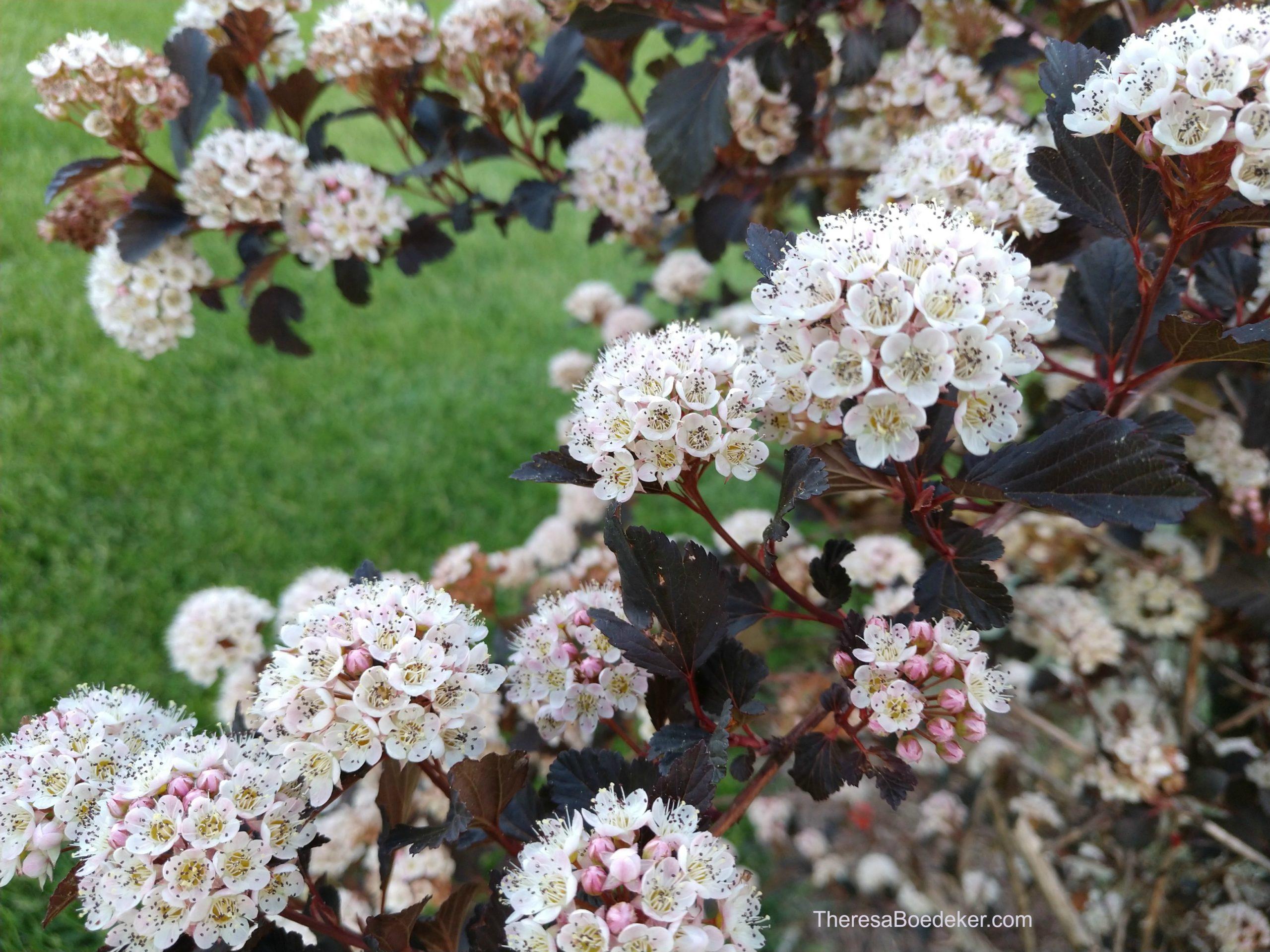Guilt and shame may look like cousins, but they have a lot of big differences. Learn how these two differ and the remedy for each. This is post 7 in a series on shame.
Guilt and shame.
I used to think they were practically the same. Maybe cousins who looked a lot alike.
Maybe because both make you squirm, feel like you are under the spotlight (or microscope), and both feel icky.
No one gets up and says, I want to be shamed or guilted today. No, they are things we are trying to avoid. Desperately trying to avoid.
Give me hot pebbles to walk on but keep that shame and guilt away.
While guilt and shame are often lumped together, they are far from practically the same.
They are different in some very key ways.


Guilt is about what we do.
By definition, guilt is an awareness that we did something wrong. It is related to an action or something we did.
When we feel guilty, we have a feeling of being responsible and deserving of some blame.
Guilt usually also has the accompanying desire to fix what is wrong.
True guilt can be simple.
We yell at our mate. We feel guilt. That guilt is often convicting us about our not so thoughtful actions. Nudging us to fix things.
We swallow our pride and tell our mate we are sorry for yelling. They forgive us and the guilt dissipates.
And even if they don’t forgive us, we feel better after apologizing to them because we are taking responsibility for our actions and doing the right thing.
Because guilt is about what we do, our actions, and something we had a choice in doing. There is a recourse for fixing and alleviating our guilt.
We acknowledge our part, apologize or confess, and receive forgiveness or alleviation from our guilt.
Besides being an awareness, guilt is also a feeling. As a feeling again it is trying to communicate something to us. To stop doing something and reconcile and make amends.
We often feel guilt for not living up to our standards and values, or those of someone else, society’s, our group’s, or Gods.
We can feel guilt for everything from sin to accidently stepping on someone’s feet.
Healthy guilt is constructive. It can help us change. Do the right thing. Make amends. Rectify mistakes. Restore relationships. And lead to repentance.
Guilt has a remedy. When we acknowledge it and own our part, it should dissipate.
If we feel guilt and don’t take steps to rectify and deal with our guilt, it will have grave consequences.

A quick word about false (unhealthy) guilt.
False guilt is based upon the fear of disapproval (from others, society, groups, or our self). It is based upon what others will think of us. Trying to avoid criticism or have people think less of us is what we are trying to avoid.
It has not broken a moral code, disobeyed, or done anything wrong or hurtful to another person.
Remember: If we are going through life trying to please everyone, not disappoint anyone, or get criticized, we won’t get far. We cannot meet everyone’s opinion of us or live up to their expectations. Look at Jesus. He was perfect and had lots of haters and displeased many.
False guilt becomes a heavy burden and is often self-inflicted. This guilt is based upon false evidence that we treat as real evidence. We judge our self inaccurately and to harshly and forget grace and forgiveness.
False guilt is looking inwardly. It can dominate our thoughts. Causing us to rehash scenarios. Imagine the worst. Wonder if we could have done something different and doubt our self. It can be fear or shame driven.
But false guilt does not have the remedy of real guilt.
If we are replaying an interaction in our mind that we had with our neighbor, wondering if we could have said something different. Wondering if we delayed to long in answering their question. Feeling guilt that they are going to misjudge us or think less of us, but we have no real evidence we did anything wrong, then we may be experiencing false guilt.
The false guilt merry-go-round can waste so much time and energy.
It often involves words such as “I should, I would, I must, I ought, I will.”

Questions to ask to determine if it is false guilt.
Our enemy can use false guilt to keep our eyes focused on our self, to doubt ourselves, to doubt God, to beat ourselves up, and to feel isolated.
To determine if you are experiencing false guilt or real guilt ask these questions of yourself:
- Why do I feel this way?
- Should I be feeling guilt over this?
- Did I do something wrong to another person that needs an apology or forgiveness? Did I sin in any way? Do I need to make amends? (yes = guilt; no = false guilt)
- Am I afraid people will misjudge me? Criticize me? But there is nothing I can really do? (yes = false guilt) (Remember: We are after God’s approval, not men’s.)
- Am I trying to control how people view and think of me? (yes = false guilt)
- Am I living in the past, what happened, and filled with regret and condemnation for myself? (yes = false guilt)
- Are my thoughts self-focused (false guilt), or outward focused on the other person and what I did to them (guilt)?
- Am I beating myself up for what I said, did, or didn’t do? Do I need to forgive myself? (yes = false guilt)
- Is this more about disappointing myself (false guilt) than disappointing the other person (guilt)?
The remedy for false guilt is to stop beating yourself up. Treat yourself as you would treat your best friend. Treat yourself as a loving God treats you. Accept God’s grace and forgiveness for yourself.
Real guilt is tied to an action that hurts or affects another person and for which we feel remorse and seek to remedy.
False guilt is tied to what people will think of me or how they will judge me. It is us doubting and condemning our self. Often, we are disappointed in our self for not living up to our standards we have set for our self. Not doing what we think we should do or what we think others think we should do, or would do).

Shame versus guilt.
Let’s compare shame and healthy guilt.
Guilt is about what we do, our actions; shame is about who we are, our identity.
Guilt is telling us we did something wrong; shame is telling us we are wrong.
Guilt is often telling us the truth; shame is telling us a lie.
Guilt happens due to a choice or action we choose to take (we have the power and choice); shame occurs due to an event or because of the action or words of someone else towards us (they have the power and choice) (although we can perpetuate shame and keep shaming ourselves in an area we have been shamed).
Guilt occurs when we overstep someone else’s boundaries; shame occurs when someone oversteps our boundaries and disrespects, demeans, and undermines our sense of dignity, worth, and value.
Guilt is a self-awareness towards the other person; shame is a self-awareness of something is wrong with us.
Guilt has a remedy — we make amends with the other person; shame has no remedy that involves making amends with the other person.
Guilt is an awareness that we did something wrong; shame is an awareness that something is wrong with us as a person.
Guilt is prompting us to remedy the situation and make amends; shame is making us feel like we can’t do anything but loathe ourselves.
Guilt dissipates when we acknowledge it and own our part of the situation; shame often dissipates when we acknowledge it to another accepting of us human and we receive empathy.
With guilt we have something we need to make amends for; with shame we feel there is nothing we can do except take the fault or accusations thrust upon us.
Guilt is constructive, and is designed to lead to good changes; Shame is destructive and leads to feeling unworthy of love, flawed, not belonging, and unworthy of connection.
While guilt and shame are two different things, guilt can bleed into shame and complicate things.
If guilt triggers a lie we believe about our identity and taps into our shame, now we have both involved.

We are not meant to reside in either guilt or shame.
God wants us neither residing in shame or guilt.
He wants us to deal with things and walk in freedom.
When we have guilt, we need to deal with it and move back to freedom.
It is our enemy who wants us to wallow in shame and guilt. To feel them in such proportion that we begin to feel hopeless, isolated, discouraged, and debilitated. He wants to steal our hope and have us ignore or medicate our unhealthy feelings, instead of deal with them.
But we can deal with both shame and guilt in healthy ways.
Healthy guilt can lead to confession, reconciliation, and change. Do your part and then receive forgiveness from God and others and believe that God uses our failures for his purposes. For our growth. And for the benefit of others.
Unhealthy guilt can be stamped out by looking outward and upward, and by changing our expectations and self-rules (quit being your harshest critic). We need to give ourselves grace and forgiveness; releasing what we cannot control.
Shame can be stamped out by replacing lies with truth. By believing the truth of our value that God gives us. By not letting others determine our worth and identity. (Lots of specific tips coming in a later post.)
Above all, don’t beat yourself up for having guilt, false guilt, or shame. God doesn’t. These are human conditions we all experience and battle. And God is acutely aware of this.
Examine your heart, confess, release, and forgive yourself and others. Remember to receive and accept forgiveness. These keep our hearts clean.
God has enough love, forgiveness, and grace to cover anything and everything we do. Quote
He wants us to walk in freedom.
And with his help and truth, we can.
Next post: Why our identity maters (and why it matters more than we probably think).

Check out this resource that covers everything you need to know about shame, including frequently asked questions.
Or take the Shame Quiz and begin to identify how shame is distorting your identity and worth. Once we know the lies that shame is wanting us to believe, we can more easily crush them with the truth.
Thanks for stopping by. Keep remembering what’s important.
Theresa
Download a free guided exercise to help you heal from shame
Download a free PDF freebie, “What to Do When You Are Feeling Shame: A Guided Exercise.” It will walk you through some practical exercises to deal with shame. Ending with how to avoid feeling shame in the future. My passion is to see you living shame-free; in glorious freedom. “What to Do When You Are Feeling Shame: A Guided Exercise” can help you step towards that freedom by breaking the lies of shame you believe and replacing those lies with the truth.
From Shame to Grace: How to Erase Shame From our Identities, a 12 part series. — Other posts in this series on shame include:
We Are Not Meant to Live in Shame
There is No Shame in Feeling Shame
How the Lies of Shame Cause Us to Think We Are the Defective Ones
Environments Where Shame Thrives
The Symptoms of Shame and the 4 Ways It Makes You Feel
12 Ways That Misinterpreting Events Causes Shame
Shame versus Guilt: What’s the Big Difference?
Combat Shame by Knowing Your True Identity
Why We Use Shame On Others and Ourselves: 6 Eye Opening Reasons
Shame: Recognize It, Heal From It, Walk in Freedom
What If Shame Has a Bigger Purpose Than Us?
Spiritual Shame: What It Is and How to Conquer It

May link up at Kelly Balarie (#purposeful faith), Crystal Storms (#HeartEncouragement), Maree Dee (#Grace & Truth), Anita Ojeda (#inspirememonday), InstaEncouagements ((IE Link-Up), and Mary Geison (#tellhisstory).

- How Knowing Your Husband Can Impact Him for Good - March 24, 2022
- How to Stop Focusing on What’s Wrong with You - March 9, 2022
- Is God Really Good All the Time? - February 24, 2022
If we’d just keep our eyes fixed on Jesus, and purpose in our hearts to please Him! I’m reminded of the apostles telling the Jewish leaders that they’d rather please God than men. And, the Bible also tells us that there is no condemnation for those who are in Christ Jesus. Thank you for sharing. Many blessings to you!
Boma. That is the key to so much of the Christian life. Keeping our eyes on him and not on us. Pleasing him and not those around us. It’s a struggle, but it solves so many of our problems and keeps us focused on what is important.
Excellent post, Theresa. I learned a lot from reading about the difference between shame and guilt. I am so glad that you added the section on false guilt. I love the distinction you made between shame and guilt: ” Guilt is telling us we did something wrong; shame is telling us we are wrong”. And yes, God does not want us to live in shame or guilt. He wants us to be free. We have the key to freedom – accepting God’s grace (and making amends for anything causing us true guilt) – we need to use it.
Laurie, I used to think guilt and shame were similar, only different in varying degrees. Guilt being less and shame being more. But yes, when you start looking at them, they are very different. Shame deals with your identity and guilt with your actions. So thankful we have doable steps to erase both. God never leaves us without a cure.
This is exactly what my EAP counselor was trying to tell me yesterday and you’ve reinforced and explained things so clearly and simply. I’m so grateful for you. I truly hope you put this series in a book.
Thanks for the encouragement, Valarie. Glad to help.
You really explain the difference so well. I especially appreciated how you showed that false guilt is unhealthy guilt. Thank you.
Thanks Marylou. I think false guilt can often feel like real guilt unless we differentiate between the two.
Theresa, I’m going to share this all over. Your series on shame is a gold mine of insightful and clarifying information. I’ve gotten so much out of it for myself and want to share it with others. Thank you so much!
Thank you Leslie. I know I have learned a lot writing and thinking about this topic. I wish I had known this years ago. It is something we need to teach our children so they are farther ahead than us.
Wow, Theresa. This is a fabulous, comprehensive, in depth overview! The enemy would love us to dwell in a place of guilt and shame which weigh us down and keep us from moving ahead for God’s Kingdom.
So very different from conviction of the Holy Spirit which is clear, specific, loving, and for our good and His glory …
Exactly, Linda. Our enemy uses just about anything to get our eyes off God and our real purpose. Guilt and shame can make us feel so hopeless and unworthy of anything good.
Such an interesting post and helpful perspective, Theresa! And I’m so glad you pointed out how the enemy uses shame to sidetrack and tempt us to give into self-condemnation. But it’s nothing but a trap! Thanks for sharing this! I’ll be pinning, my friend!
Self condemnation is such a trap that we fall into. We then think God condemns us and others condemn us. The truth is, God wants us walking in freedom and love.
Great definitive post on the difference between guilt and shame. So often, the two are confused, although sometimes they seem to be intertwined.
Thanks for linking up at InstaEncouragements!
I know I used to confuse the two. You are right. They can be intertwined. We can feel guilt in areas we also have shame. And feel shame in areas we do something that produces a feeling of guilt. They can play off one another or trigger one another because of our past experiences and history.